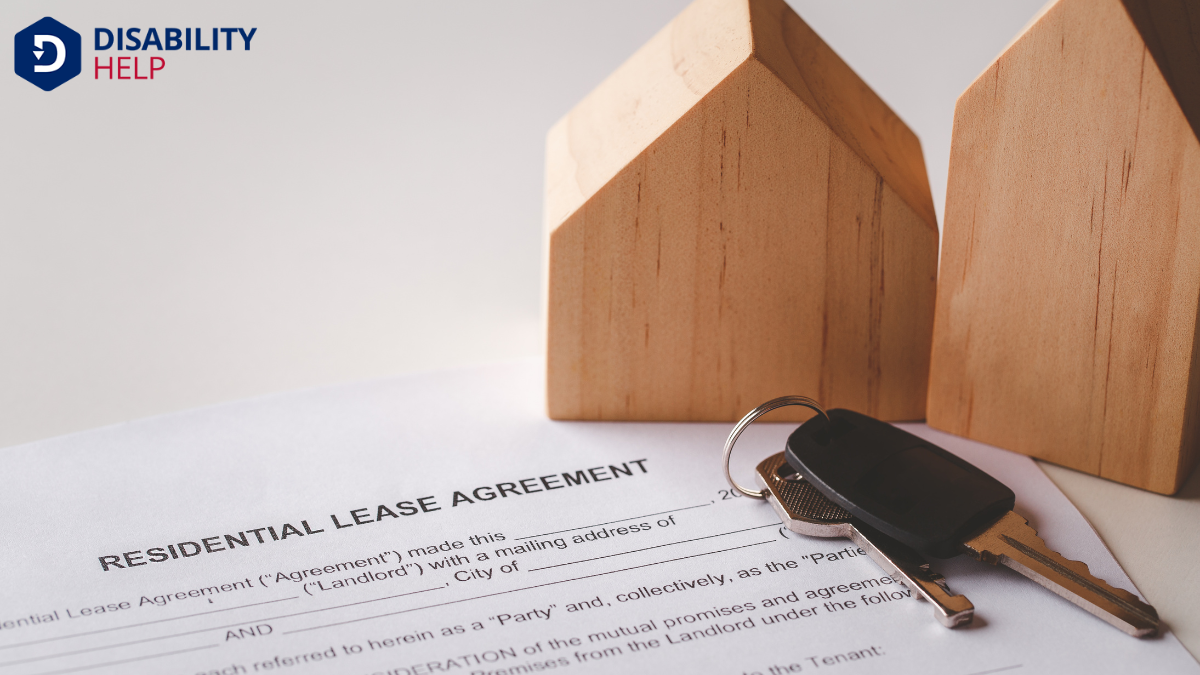Let's explore an essential topic: can landlords refuse to rent to individuals with disabilities? Under the Fair Housing Act, such discrimination is illegal, yet some landlords might still engage in these practices, whether intentionally or not. It's vital that we not only understand our rights but also recognize the forms this discrimination can take. Are landlords truly meeting their obligations, or are tenants facing unjust barriers? Join us as we unravel these questions.
Key Takeaways
- Landlords cannot refuse to rent to someone based on a disability, as per the Fair Housing Act.
- Discrimination against tenants with disabilities, such as refusing to rent, is illegal.
- Reasonable accommodationsModifications or adjustments in healthcare settings to support patients with disabilities. must be provided for tenants with disabilities upon request.
- Imposing different rental terms based on disability is prohibited under the Fair Housing Act.
- Tenants with disabilities have the right to request modifications for accessibilityThe design of products, devices, services, or environments to be usable by people with disabilities.... at their own expense.
Understanding the Fair Housing Act
The Fair Housing Act, enacted in 1968 and amended over the years, is a cornerstone of civil rightsThe rights of individuals to receive equal treatment under the law, including protection against dis... legislation that aims to eliminate discrimination in housing. Together, we can better understand its purpose and reach.
This law prohibits discrimination based on race, color, national origin, religion, sex, familial status, and disability. It's essential for us to grasp that its protections guarantee everyone has the opportunity to find housing without facing prejudice.
As we explore this topic, let's remember that the Act requires landlords to provide reasonable accommodations for disabled individuals. This means landlords can't simply refuse to rent to someone because of a disability.
Identifying Forms of Discrimination

Recognizing the importance of the Fair Housing Act sets the stage for identifying various forms of discrimination that persist in the housing market. Discrimination against individuals with disabilities can take many forms, and it's essential that we're aware of them.
For instance, a landlord might refuse to rent to someone because they use a wheelchair, wrongly assuming it will be a burden. At times, landlords might impose different terms or conditions, like charging extra fees or requesting unnecessary documentation. Such actions are discriminatory and illegal.
We must also be aware of subtler forms of discrimination, like steering potential tenants toward specific areas or units based on their disability.
Reasonable Accommodations and Modifications
When we think about ensuring equal housing opportunities for disabled individuals, understanding reasonable accommodations and modifications is key.
These accommodations might involve changes to policies or practices, while modifications often refer to physical alterations that make a property accessible.
Let's explore how these adjustments help create inclusive living spaces and the responsibilities landlords have to implement them.
Definition of Reasonable Accommodations
Understanding what constitutes reasonable accommodations is essential for guaranteeing that disabled individuals have equal accessThe principle that all individuals, including those with disabilities, should have equal opportunity... to housing.
Let's explore what these accommodations might include.
- Adjustments to Rules: Sometimes, it means tweaking existing policies. For instance, allowing a service animalAn animal that is trained to perform tasks for the benefit of a person with a disability, protected ... in a no-pet building.
- Communication Aids: Providing documents in accessible formats, such as large print or Braille, guarantees everyone can understand their lease terms.
- Assistive Technology: Installing visual doorbells or smoke detectors can cater to individuals with hearing impairments.
- Parking Adjustments: Allocating a closer parking spot for someone with mobility issues can be a simple yet impactful change.
Modifications for Accessibility Needs
While reasonable accommodations focus on policy adjustments, modifications for accessibility needs address the physical environment.
We often encounter situations where tenants with disabilities require changes to their living spaces to guarantee safety and independence. These modifications might include installing grab barsBars installed in bathrooms or other areas to provide support and prevent falls for those with mobil..., widening doorways, or lowering countertops.
It's essential for us to understand that these changes aren’t luxuries; they're necessities that enable individuals to live comfortably and safely.
Landlords are generally required to allow these modifications under the Fair Housing Act, provided the tenant bears the cost and agrees to restore the property when they move out.
We must approach these requests with empathyThe ability to understand and share the feelings of another, particularly important in understanding... and a willingness to collaborate, guaranteeing that everyone has equal access to housing that meets their unique needs.
Landlord Obligations and Responsibilities
As landlords, we must be aware of our obligations and responsibilities, especially when it comes to renting to disabled individuals.
Guaranteeing we comply with the law and support inclusive communities is essential. Here’s a concise breakdown of our duties:
- Fair Housing Act Compliance: We’re prohibited from discriminating against tenants with disabilities. This means providing equal access to housing opportunities.
- Reasonable AccommodationModifications or adjustments to a job or environment that enable a person with a disability to perfo...: We must allow modifications at the tenant's expense, like installing grab bars, to guarantee the unit meets their needs.
- Effective Communication: Maintain open lines of communication with prospective and current tenants to address concerns and needs promptly.
- Policy Awareness: Regularly update our knowledge on disability rightsThe legal and human rights afforded to individuals with disabilities, often the focus of advocacy an... and housing laws to guarantee full compliance and prevent legal issues.
Tenant Rights and How to Assert Them

Even though landlords have clear responsibilities, tenants with disabilities also have rights they can assert to guarantee fair treatment. We all deserve a safe, accessible place to live.
The Fair Housing Act protects us against discrimination, ensuring landlords can't deny housing based on disability. If we need reasonable accommodations, like a service animal or modifications for accessibility, we should request them in writing.
It's essential to communicate our needs clearly and keep records of all interactions with landlords. Staying informed about our rights empowers us to advocate effectively.
Let’s remember, we're not alone. Many organizations offer support and resources. By asserting our rights confidently and knowledgeably, we can foster a more equitable living situation for everyone.
Legal Recourse for Discrimination Cases
If we face discrimination based on disability in housing, pursuing legal recourse can be a powerful way to enforce our rights.
To navigate this process, we should take these steps:
- Document Everything: Keep detailed records of all interactions with the landlord. Emails, texts, and notes from phone calls can support our case.
- File a Complaint: We can file a complaint with the U.S. Department of Housing and Urban Development (HUD) or our local fair housing agencyThe capacity of individuals with disabilities to act independently and make their own choices.. They investigate claims of discrimination.
- Seek Legal Advice: Consulting with a lawyer specializing in housing discrimination can clarify our rights and options.
- Consider Mediation: Before going to court, mediation might resolve the issue amicably and save time.
Frequently Asked Questions
Can a Landlord Request Medical Documentation of a Disability?
We can't demand medical documentation for someone's disability unless it's for a reasonable accommodation requestA formal request made by an employee with a disability for reasonable adjustments to their work envi.... It's important we respect privacy and follow fair housing laws, ensuring everyone has equal access to housing without discrimination.
Are Emotional Support Animals Considered a Reasonable Accommodation?
We’re wondering if emotional support animals qualify as reasonable accommodations. They generally do, under fair housing laws, allowing individuals with disabilities to have them even in no-pet policies. It’s essential to comprehend tenants' rights and accommodations fully.
Can a Landlord Charge Higher Rent for Tenants With Disabilities?
We can't allow landlords to charge higher rent for tenants with disabilities. The law protects against discrimination, guaranteeing that everyone pays the same rate for equal housing. Let's guarantee fair treatment and advocate for inclusive communities together.
How Can Tenants With Disabilities Improve Their Rental Application?
Let’s enhance our rental applications by highlighting stable income, reliable references, and a clear rental history. We can also include a personal letter explaining our situation and needs, fostering understanding and emphasizing our suitability as tenants.
Can a Lease Be Terminated if the Landlord Discovers a Disability Later?
We can't terminate a lease if a disability is discovered later. It's essential to uphold fair housing laws and respect tenant rights. If concerns arise, let's discuss them openly and find a solution that works for everyone.
Conclusion
In understanding the Fair Housing Act, it's essential that we all recognize the rights of tenants with disabilities. Discrimination in housing isn’t just unfair—it’s illegal. We must guarantee landlords fulfill their obligations, offering reasonable accommodations and modifications. If you or someone you know faces discrimination, it's critical to assert your rights and seek assistance. Together, we can create inclusive communities where everyone has equal access to housing opportunities. Let's stand up against housing discrimination.






